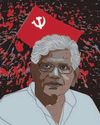Electoral bonds fail to make political donations transparent; provide back-door entry for foreign funds

IN JANUARY THIS YEAR, when the seventh tranche of electoral bonds went on sale, the response was impressive. Bonds worth 350.4 crore were purchased. In October 2018, just ahead of the assembly elections in five states, donors displayed an even bigger interest, buying bonds worth 401.7 crore.
In the run-up to the assembly polls, the government decided that electoral bonds will be sold in March, April and May 2019. On the face of it, a hike in donations to political parties just ahead of elections is not wrong. It ought to be welcomed even, since the avowed purpose of electoral bonds is to enhance transparency in political funding.
But serious questions are being asked about whether the scheme has ended up increasing the opaqueness in the system, and whether it only serves to legitimise the already entrenched nexus of corporates and political parties. These questions arise from an analysis of the scheme’s format and norms, and from the statistics related to it since March 2018, when the first tranche of electoral bonds was sold.
An analysis by the Association for Democratic Reforms found that, after electoral bonds were introduced, more than half the contributions to political parties came from unknown sources. ADR’s study of the contributions reported by political parties for 2017-18 found that 53 per cent of the 689.44 crore that was received came from unknown sources. While 51 per cent of this came from donations below 20,000, which can be legally anonymous, as much as 31 per cent came from electoral bonds.
This figure concerns only the first tranche. The impact of the remaining six tranches can be visible only in the contribution reports for 2018-19. In the seven tranches issued so far, bonds worth 1,407 crore have been purchased.
This story is from the {{IssueName}} edition of {{MagazineName}}.
Start your 7-day Magzter GOLD free trial to access thousands of curated premium stories, and 9,000+ magazines and newspapers.
Already a subscriber ? Sign In
This story is from the {{IssueName}} edition of {{MagazineName}}.
Start your 7-day Magzter GOLD free trial to access thousands of curated premium stories, and 9,000+ magazines and newspapers.
Already a subscriber? Sign In

Themes Of Choice
As Savvy Investors Seek New Avenues, Thematic Mutual Funds Are Gaining Popularity

A golden girl
One of India's most formidable beauties passed away earlier this month. The odd thing is she would absolutely hate this obituary; she hated being written about and avoided publicity for all of her nine decades. Indira Aswani was 93 when she died. But anyone who encountered her, even briefly, was in such awe of her grace and poise, and one could not but remember her forever.

The interest in wine is growing delightfully in India
The renowned British wine writer and television presenter Jancis Robinson, 74, recently came to Delhi and Mumbai to reacquaint herself with India's wine industry. This was the Robinson's fourth visit to India; the last one was seven years ago. On this trip, Robinson and her husband, restaurateur Nicholas Lander, were hosted by the Taj Hotels and Sonal Holland, India's only Master of Wine.

United in the states
Indian-Americans coming together under the Democratic umbrella could get Harris over the line in key battlegrounds

COVER DRIVE
Usage-driven motor insurance policies offer several benefits

GDP as the only measure of progress is illogical
Dasho Karma Ura, one of the world's leading happiness experts, has guided Bhutan's unique gross national happiness (GNH) project. He uses empirical data to show that money cannot buy happiness in all circumstances, rather it is family and health that have the strongest positive effect on happiness. Excerpts from an interview:

India is not a controlling big brother
Prime Minister Tshering Tobgay considers India a benevolent elder sibling as the \"big brotherly attitude\" is happily missing from bilateral ties. He thinks the relationship shared by the two countries has become a model of friendship not just for the region, but for the entire world. \"India's attitude is definitely not of a big brother who is controlling and does not allow the little brother to blossom and grow,\" says Tobgay in an exclusive interview with THE WEEK.

Comrade with no foes
Lal Salaam, Comrade Yechury-you were quite a guy!

Pinning down saffron
In her first political bout, Vinesh Phogat rides on the anti-BJP sentiment across Haryana

MAKE IN MANIPUR
Home-made rockets and weapons from across the border are escalating the conflict